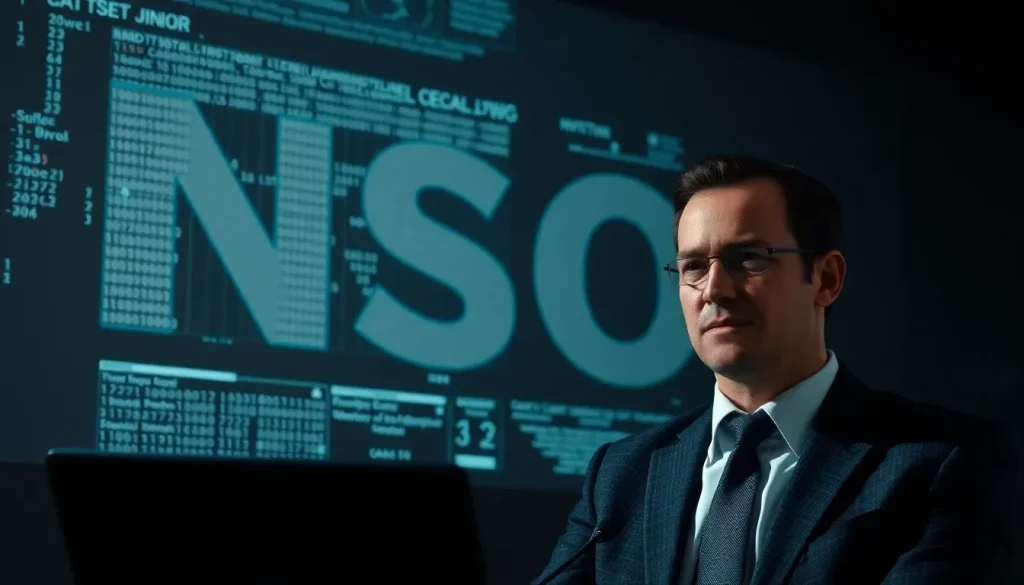Hollywood Producer Leads Investor Group to Acquire NSO Spyware Company

In a significant development within the tech industry, NSO Group, the Israeli company notorious for its Pegasus spyware, is set to be acquired by a group of investors led by Hollywood producer Robert Simonds. This move raises questions about the future of the controversial spyware and its implications for privacy and security worldwide.
Details about the investor group and acquisition
NSO Group has long been on the radar for its development of Pegasus, a sophisticated spyware that exploits vulnerabilities in iOS and Android devices. This tool has been used by government agencies to gain unauthorized access to targeted smartphones, leading to numerous controversies and ethical debates surrounding surveillance technology.
The acquisition, spearheaded by Robert Simonds, is currently under review and requires the approval of both Israel's Defense Export Control Agency and the Federal Trade Commission (FTC) in the United States. This is crucial given NSO's history of involvement with high-stakes legal battles and its contentious reputation.
Simonds, who previously attempted to acquire the company and subsequently resigned when negotiations faltered, has now reportedly struck a new deal. The exact financial details remain undisclosed, which adds an element of intrigue to the transaction.
Concerns have been raised regarding Simonds’ previous business relationships, particularly his ties to Chinese investors. His founding of STX Entertainment in 2012, with funding from entities like Hony Capital—a Chinese private equity firm—has cast a shadow over the acquisition due to potential regulatory scrutiny.
Controversies surrounding Pegasus spyware
Over the years, NSO Group has faced numerous legal challenges and accusations. One of the most notable cases involved Meta (formerly Facebook), which sued the company for allegedly targeting WhatsApp users using a zero-click exploit. In 2023, Meta was awarded $167 million in damages, highlighting the serious legal ramifications of NSO’s operations.
Additionally, the ethical implications of using spyware like Pegasus have sparked global debates. Human rights organizations have condemned its use in targeting activists, journalists, and political opponents. This has led to calls for stricter regulations governing such surveillance technologies.
- Zero-click exploits: Pegasus can infiltrate devices without user interaction.
- Targeted surveillance: Often used by governments to monitor dissidents.
- Legal battles: Ongoing lawsuits highlight the contentious nature of NSO's practices.
- Human rights concerns: The use of spyware raises questions about privacy violations.
- Global response: Countries are reevaluating their stance on the use of surveillance technologies.
Implications of the acquisition for NSO Group
The potential acquisition by Simonds and his group of investors raises several important questions about the future direction of NSO Group. One aspect of concern is whether the new ownership will lead to changes in how the company operates and the ethical standards it upholds.
NSO has stated that despite the change in ownership, the company will remain under Israeli regulatory control. A spokesperson emphasized that operational headquarters and core functions will continue to be based in Israel, ensuring adherence to local laws and regulations.
This assurance, however, was later contested when the spokesperson requested to retract their comments, claiming they were made off the record. This incident underscores the complexities and potential instability surrounding NSO's public relations and governance.
Potential hurdles in the acquisition process
While the acquisition appears to be moving forward, several hurdles could impede its finalization. Among these potential obstacles are:
- Regulatory approvals: The deal must receive clearance from the Israeli Defense Export Control Agency and the FTC.
- Public scrutiny: Ongoing concerns about the ethical implications of NSO's products may attract media attention and public backlash.
- Previous controversies: Past legal issues and negative publicity could complicate investor confidence.
- Business ties to foreign entities: Simonds' connections with Chinese investors may prompt additional scrutiny from regulators.
This multi-layered scrutiny suggests that while the acquisition is being positioned as a new beginning for NSO, it remains embroiled in a complex matrix of legal, ethical, and regulatory challenges.
Future of surveillance technology and privacy
The acquisition of NSO Group by a Hollywood investor highlights the ongoing tensions between technological advancement and privacy rights. As governments and corporations continue to explore surveillance technologies, the implications for personal privacy and civil liberties remain profound.
With the rise of advanced spyware, concerns about misuse and overreach are at an all-time high. This acquisition could signal a shift in how surveillance companies operate, particularly in terms of transparency and accountability.
For consumers and activists, the future landscape of privacy will depend on how companies like NSO evolve in response to societal pressures and legal requirements. The balance between national security and individual rights will undoubtedly be a focal point in the discussions surrounding the use of such technologies.
For further insights, you can watch this enlightening video on the implications of Pegasus spyware and mobile safety:
Conclusion
The dynamics surrounding NSO Group's acquisition by a Hollywood producer encapsulate the intricate interplay of technology, ethics, and governance in today's digital age. As this situation unfolds, it will be crucial to monitor how these developments affect the broader conversations about privacy, surveillance, and human rights.




Leave a Reply